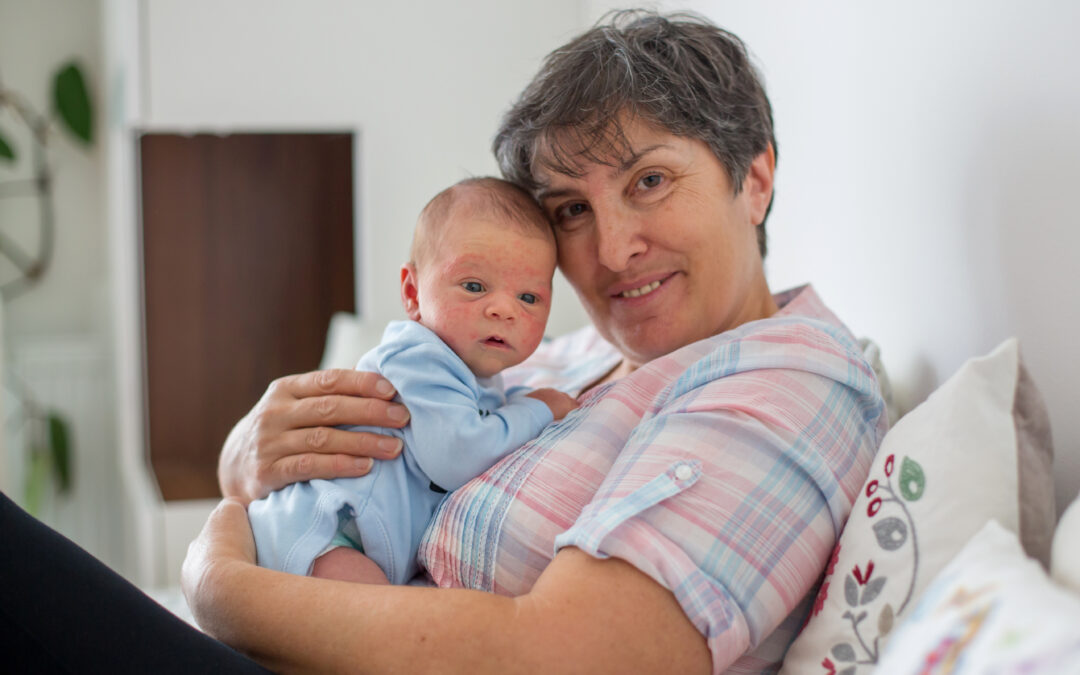Becoming a grandmother is a momentous and transformative experience, marking a new chapter in a woman’s life. It’s a role celebrated across cultures and often awaited with great anticipation. This significant life event brings with it a range of emotions, responsibilities, and unique joys. This article explores the multifaceted experience of becoming a grandma, from the emotional transitions to the new dynamics in family relationships, and the special bond that forms between a grandmother and her grandchildren.
1. The Emotional Transition
The transition to becoming a grandmother is often accompanied by a profound emotional journey.
- Joy and Excitement: The arrival of a grandchild typically brings immense joy and excitement. It’s a time of celebration and a profound sense of continuity and legacy.
- Nostalgia and Reflection: Many new grandmothers find themselves reflecting on their own experiences of motherhood, leading to a deeper understanding and appreciation of their role in the family.
- Complex Emotions: For some, this transition can also stir complex emotions, particularly relating to aging, changing roles, and memories of their own parents or grandparents.
2. The Bonding Process
One of the most beautiful aspects of becoming a grandma is the bonding process with the new grandchild.
- Immediate Connection: Many grandmothers report an instant connection with their grandchild, a bond that feels both natural and profound.
- Building a Relationship: Over time, grandmothers play a significant role in their grandchildren’s lives, often providing love, wisdom, and a sense of history.
- Different from Parenting: The grandparent-grandchild bond is unique and differs from the parental bond, often described as more relaxed and less burdened by the responsibilities of direct caregiving.
3. Changing Family Dynamics
Becoming a grandmother can shift family dynamics in various ways.
- New Role in the Family: The new role may change the grandmother’s interactions with her own children, as she supports them in their parenting journey.
- Generational Bridge: Grandmothers often become the link between different generations, fostering family cohesion and continuity.
- Respecting Boundaries: Navigating the balance between offering support and respecting the parenting choices of the grandchildren’s parents can be crucial in maintaining harmonious family relationships.
4. The Joys of Grandparenting
There are many joys and rewards associated with grandparenting.
- Sharing Wisdom and Traditions: Grandmothers have the opportunity to impart wisdom, share family traditions, and pass down cultural heritage.
- Experiencing Childhood Again: Through their grandchildren, grandmothers often relive the joys of childhood, experiencing the world anew through a child’s eyes.
- Less Pressure than Parenting: Many grandmothers enjoy the ability to spoil and indulge their grandchildren in ways they might not have with their own children, often without the same pressures and responsibilities of parenting.
5. The Role of a Modern Grandma
The role of a grandmother has evolved over time, adapting to modern family structures and societal changes.
- Active and Involved: Today’s grandmothers are often more active and involved in their grandchildren’s lives, sometimes even taking on caregiving roles.
- Balancing Life: Many new grandmothers are still working or have active social lives, hobbies, and interests, balancing these with their role as a grandparent.
- Technologically Savvy: Modern grandmothers are increasingly tech-savvy, using technology to stay connected with their grandchildren, especially when living far apart.
6. The Challenges of Modern Grandparenting
While being a grandma brings immense joy, it also comes with its own set of challenges in today’s world.
- Distance and Connectivity: In our global society, families often live far apart. Grandmothers may face challenges in building a strong relationship with their grandchildren due to geographical distance.
- Balancing Roles: Many grandmothers today juggle multiple roles, including careers, personal interests, and other family responsibilities. Finding a balance can be challenging but also rewarding.
- Changing Parenting Styles: Adapting to the modern parenting styles and choices of their children can be a learning curve for many grandmothers.
7. The Importance of Self-Care for Grandmothers
Self-care is crucial for grandmothers to maintain their health and well-being to fully enjoy and engage in their role.
- Setting Boundaries: It’s important for grandmothers to set boundaries regarding their time and energy to avoid burnout.
- Pursuing Personal Interests: Continuing to pursue personal hobbies, interests, and social connections can provide a fulfilling balance in a grandmother’s life.
- Health and Wellness: Attending to physical health, nutrition, and exercise is essential for grandmothers to stay active and involved.
8. The Evolving Role Across Cultures
The role of a grandmother varies greatly across different cultures, reflecting diverse traditions, expectations, and family structures.
- Cultural Expectations: In some cultures, grandmothers play a pivotal role in family care and upbringing, while in others, they might have a more hands-off approach.
- Transmitting Cultural Heritage: Grandmothers often play a key role in imparting cultural values, traditions, and language to their grandchildren.
9. The Emotional Support System
Grandmothers can be a significant emotional support for their grandchildren, offering a unique form of love and stability.
- Unconditional Love: The unconditional love of a grandmother can provide children with a sense of security and confidence.
- Mentor and Confidante: Grandmothers can act as mentors, offering wisdom and a listening ear, often without the judgments or expectations that parents might have.
10. Impact on Grandchildren’s Lives
The influence of a grandmother on her grandchildren can have a lasting impact.
- Role Model: Grandmothers can serve as role models, influencing their grandchildren’s attitudes, values, and behaviors.
- Emotional and Social Development: The bond with a grandmother can positively affect a child’s emotional and social development, providing them with another layer of nurturing and care.
11. The Legacy of a Grandmother
Becoming a grandma is about creating a legacy, leaving an indelible mark on the family’s future generations.
- Passing Down Stories and History: Grandmothers are often the keepers of family history and stories, linking past generations with future ones.
- Influencing Future Generations: The values, lessons, and love imparted by grandmothers can shape the family for generations to come.

